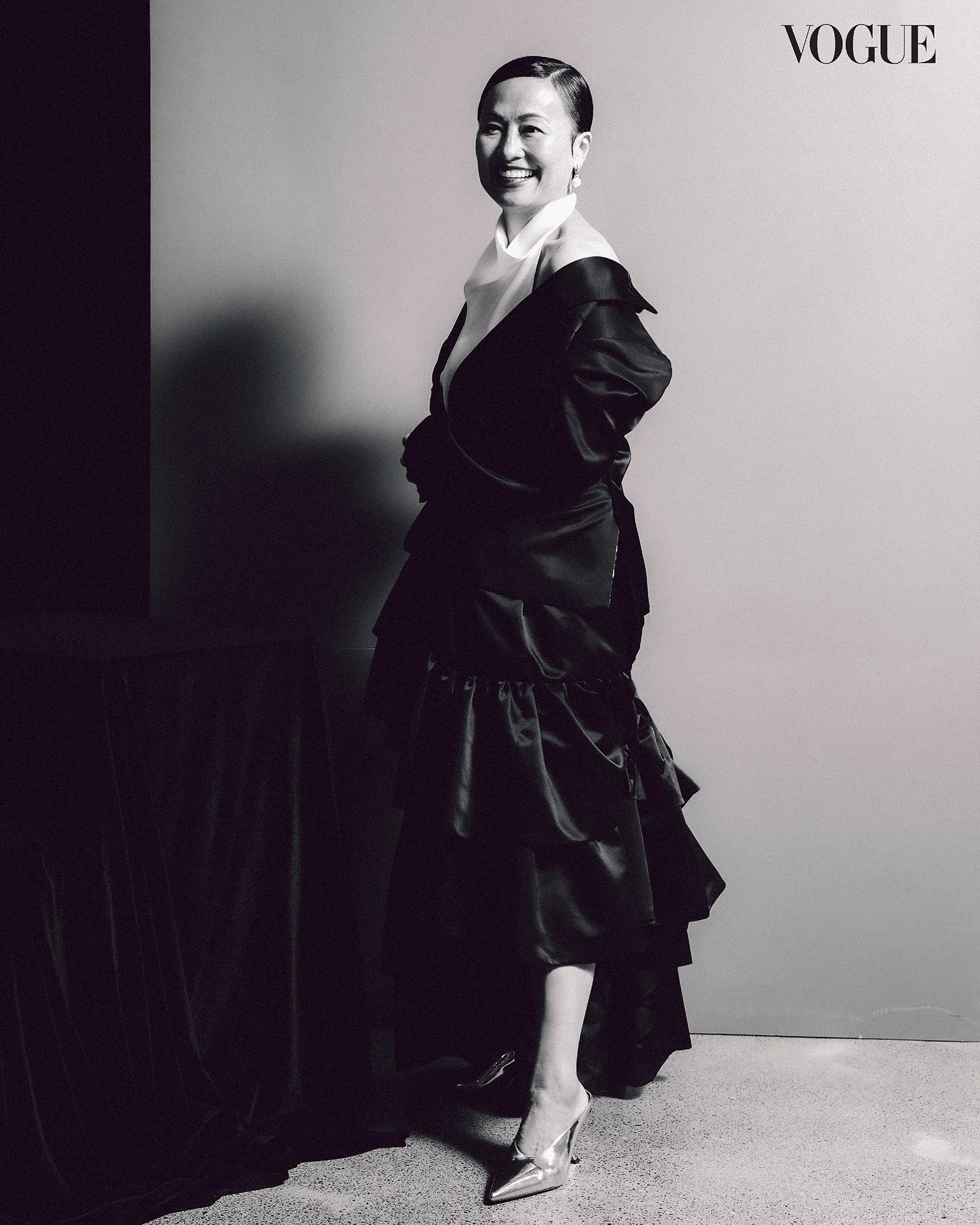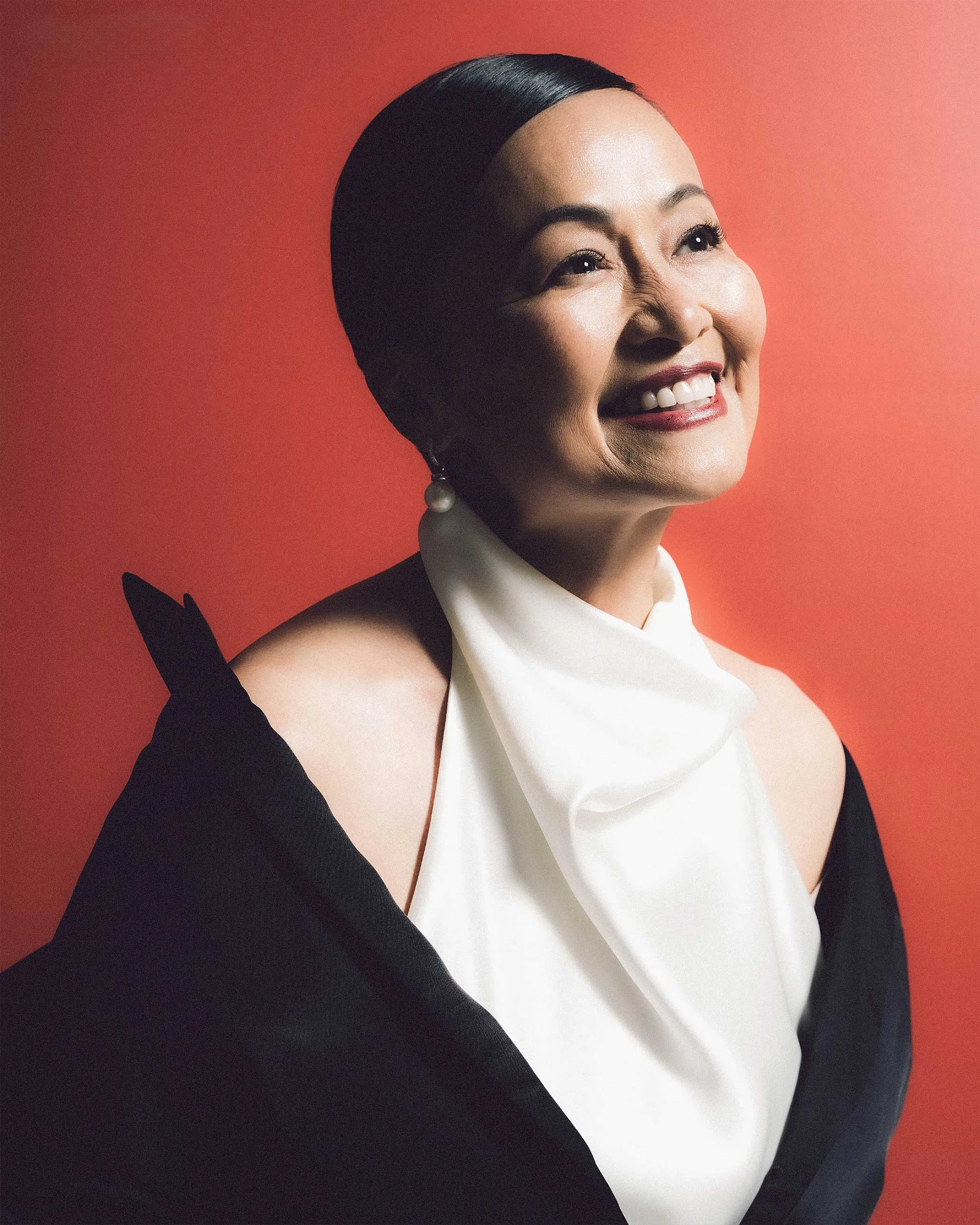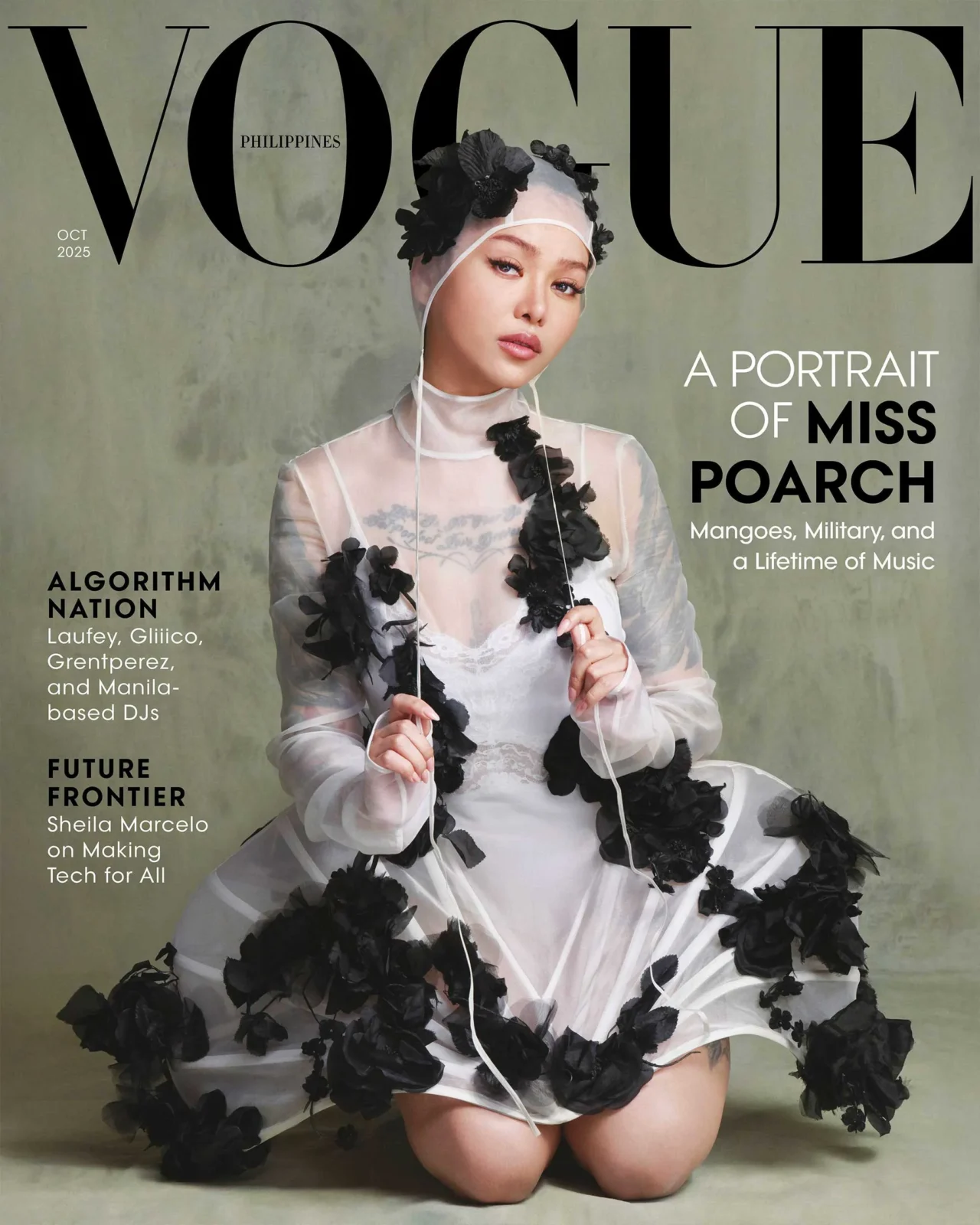Sheila wears a ZARA silk blazer and COS cowl-neck top. Photographed by Karl King Aguña for the October 2025 Issue of Vogue Philippines
After transforming how families find caregivers with Care.com, Sheila Lirio Marcelo turns to AI with Ohai.ai.
It was pitch night at the ACTAI Asia Pacific summit, a networking conference for tech entrepreneurs held on the pristine beaches of Pangalusian Island last February. The competitors, representing the most promising AI startups in the world, stood on stage in flip-flops and floral shirts as they proceeded to convince the venture capitalists in the audience why their particular AI model will, you know, make the world a better place. Then came Sheila Marcelo, the only female founder from the bunch, who shifted the energy from abstract coding language to something I could relate to: being a harried working mother. She introduced O, an attractive, ethnically ambiguous virtual assistant with a posh accent, who ran through a hypothetical day’s schedule, resolving conflicting appointments and assigning tasks to a hypothetical spouse.
The audience cheered. I felt seen, as a mom who has mixed up the date for a book study or parent-teacher meeting, or forgotten to pick up the one kid whose class ended at a different time. The cognitive overwhelm is real: the US surgeon general called the invisible work of parental mental load, one that falls disproportionately on mothers, a public health crisis.
Marcelo had been thinking about the problem of the impossibility of everyday life coordination since 2015, but at the time, the technology wasn’t ready. Timing is key: In 2006, she launched Care.com, the online platform that simplified finding care services, becoming the first Asian American woman CEO to take her company public in 2014. The idea for Care.com came from her own experiences as a young mother trying to juggle a career while also caring for an ill parent. Cultural perceptions around hiring caregivers online had shifted after the embrace of sites like Monster.com and Match.com, which helped people find jobs and partners online. Society is undergoing another shift now, and not just technologically.
“There’s a consciousness around the mental load, and there is an openness of people talking about stress and the impact social media may have on us.”
“There’s a consciousness around the mental load, and there is an openness of people talking about stress and the impact social media may have on us,” Sheila says. “There’s just an openness, as opposed to feeling ashamed to talk about those things. I think that cultural shift in that moment is now, where people seek help for tools.”
Advances in natural language processing and context-aware AI has made the vision possible: a digital assistant that isn’t robotic, but empathetic, one that understands family dynamics and anticipates individual needs. The Ohai.ai team started by interviewing 200 families on which tasks they would gladly delegate to a VA, the top of which are meal planning, vacation research, and scheduling doctor’s appointments.
Unlike other generic virtual assistants, Ohai is designed with family life at its core. “We iterated on it every day, to build new tools like scheduling, reminders, coordination. It allowed us to really focus on the human beings using the product, and what they really need to address their needs and solving a real pain point, like we did when we built Care.com.” Ohai will get to know your household preferences, like who likes pepperoni or pineapple on their pizza, and which night to order them. For co-parents navigating divorce, the app coordinates schedules to minimize friction. “Couples often bicker around failed logistics,” Marcelo notes. “If we can smooth that out, it reduces stress in families and impacts children’s wellbeing.”
The goal is not to replace human care but to complement it. Ohai’s name reflects this philosophy: “humanity within AI.” This human-in-the-loop approach is crucial to developing AI that is ethical and accurate. A portion of her team is based in the Philippines, many of whom are former BPO workers whose strengths in service bring that empathetic human touch to the platform.

Back in El Nido, a venture capitalist and young mother herself named Rachel Springate listened to Sheila’s pitch and knew she wanted to lead its investment round. Rachel’s company Muse Capital specializes in backing femtech and female-led companies, and Ohai aligned perfectly with its vision. “Rachel was so assertive that we ended up raising money with her and a bunch of celebrities, different investors who are really authentically using the product.” Olivia Munn and Mindy Kaling are among the high-profile backers who endorse and use Ohai. “I’m on my way to take my three-year-old to swim class and this time I haven’t forgotten. God bless Ohai,” Munn posted on IG. (Celebrity moms, they’re just like us).
For Marcelo, invisible labor is an economic issue on top of being a personal one. She refers to an Oxfam report showing that women perform nearly double the unpaid labor of men each day. “If we freed up even one hour of that time, it would translate to a trillion dollars of GDP in the U.S. alone,” she says. “What we’re doing is freeing up time. They could decide to do yoga, do an extra hour of exercise, or spend more time with their kids, but that mental health means they’re more productive when they do work. Or if they decide to free up their unpaid labor and work an extra hour of paid labor. That helps the economy, too. So in some sense, giving people that choice is a powerful mission that we have at Ohai.”
Her perspective is also shaped by her role as a new grandmother. Watching her daughter-in-law take time off work to care for a baby has brought her even closer to understanding the mental load that families carry. “I see how taxing it is…and I want to build the tools that ease the burden on people like my daughter-in-law.”
Sheila’s own sense of balance is credited to her transcendental meditation practice, which she does twice a day. For 20 minutes, she lets her thoughts drift like clouds, training her mind, and her somatic memory, to remember how to let go of stress. This practice of grounding is immersed in the brand of Ohai and in how she approaches leadership. “I’m not trying to flee forward into the future and anticipating the next thing, nor am I guilting myself of the past,” she says. “I’m just here with you.” At the heart of Sheila’s philosophy, whether through self-care or caring for others, is a commitment to nurturing the potential in people and making the right connections, human or AI-assisted, that can help us thrive.
By AUDREY CARPIO. Photographs by KARL KING AGUÑA. Deputy Editor: Pam Quiñones. Art Director: Jann Pascua. Media Channels Editor: Anz Hizon. Producer: Julian Rodrigez. Lighting Technician: Rojan Maguyon. Stylist: Geno Espidol of Qurator. Makeup: Neal Allen. Hair: Patty Cristobal.

